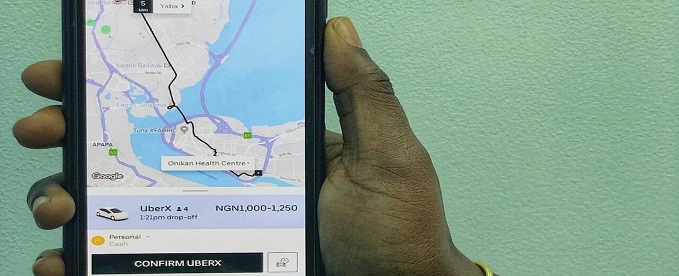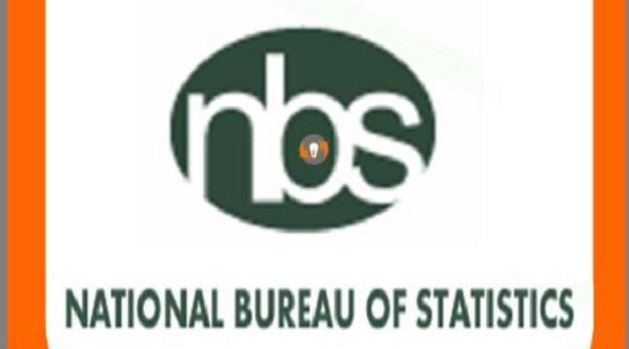E-Business
Lagos Gridlock: Google Maps Opens Lanes for Road Users

A 2017 study listed the 150 least to most stressed out cities in the world. With Stuttgart in Germany nabbing first spot as the least stressed city to live and work in, Lagos came in at 148 (just two spots ahead of the most stressed city – Iraq) which will be no surprise to daily commuters on Lagos streets.
There were obviously factors other than traffic playing a role in defining this list but lack of space and cramped environments, including high traffic areas, featured high on the list of reasons people are stressed out in cities like Lagos.
Traffic is a challenge, no doubt about it, but there are tools available for Lagos road users to use to help smooth their journeys and make life a little easier.
Do the most with your travel time using Google Maps:
Lagos traffic may seem like an insurmountable, unavoidable, stressful part of the workday, over which it may seem you have no control. The truth is, there are several ways you can use technology to reclaim a few hours every day or make good use of your time on the road.
First and foremost, how real is the traffic situation?: Who says you have to hit the road at 07h30 or 17h00 sharp? With just one tap, you have access to information like ETAs, live traffic updates and quickest routes to familiar places – like home, work and the gym. This will help you decide whether you should join the fray or stick around, head off to the gym or make a stop to buy the milk you know is needed at home.
Know before you go: If gym is an alternative to traffic for you but queues aren’t, try using Google’s “Popular Times” feature. This is accessible through Search and Maps and will help you decide how to better use your time. If the gym’s too busy and filled with other traffic dodgers, for example, you can choose to see how busy things look at your local mall or the library or the supermarket.
Share your ETA and location: Sitting in traffic on your way to work and your boss keeps asking for updates? Use the Share Trip Progress functionality in Google Maps to share your journey with them, via Whatsapp, Facebook Messenger or even email. Once they open your shared link in Maps, they’ll be able to track your progress with ease. In much the same way, you can share an actual estimated time of arrival at home with your family, keeping their minds at ease on those “extra trafficky” days.
Driving in cars with kids: If it’s your turn to drop the kids off at school, and you have an Android device, why not use Google’s Bolo app to use their time in traffic wisely? Bolo is a speech-based reading app that helps kids learn how to read in English – your kids can read out loud with the app, which “listens” to them while offering encouragement and feedback to help improve their reading skills. Bolo operates offline so there can be no “poor coverage” excuses!
Mixed Transit options coming soon: People, in general, are quick learners and those faced with traffic on a daily basis will often find ways to shorten or ease this process. For some, this means mixed options when it comes to transport. You could drive or cycle to a taxi/bus station, taxi/bus or rideshare from there and then walk the last few metres to work. Google has announced its Mixed Transit feature, which will be coming to your phone soon and promises to help commuters plot their mixed transit options out every day – choosing the fastest option available.
E-Business
Senate Passes Bill to Re-enact NIMC Act

The Senate has passed a bill, seeking to repeal and re-enact the National Identity Management Commission (NIMC) Act.

This followed adoption of report of Committee on National Identity Card and Population at plenary on Wednesday.
The report was presented by Senator Victor Umeh (LP-Anambra), chairman of the committee.
Senator Umeh in his presentation said the bill sought to provide for the establishment of a national identity database and the National Identity Management Commission.
According to him,the agency will be charged with responsibilities for maintenance of national database, the registration of individuals and the issuance of identity credentials.
He said the bill would lead to the creation of national identity database to source business biometric and empower NIMC to issue regulations and guidelines for implementation of the act and other related matters.
He said the bill sought to strengthen the legal framework of national and digital identity, hereby creating an optimal foundational identification ecosystem that fosters inclusion, universal coverage, and accessibility.
Senator Umeh said the act would establish a harmonious foundational identity system that is governed by a less restrictive, less cumbersome, non-discriminatory, non-punitive data protection, cost-effective, and compliance with global borders.
Senator Umeh said the bill, when passed into law, would address the challenges and limitations of national Identity management commission Act 2007, repeal it, and then close the gap of incomplete and inaccurate national identity database, provide efficient governance and service delivery.
He said the bill received overwhelming support from stakeholders at the public hearing due to the need to implement the long-awaited database system.
E-Business
World Bank Expresses Concern over Nigeria’s Poor Data, Statistics Quality

The World Bank has expressed concern over Nigeria’s poor statistical performance, noting that the country lags behind its aspirational peers such as Mexico, Colombia, South Africa and Brazil.

Mrs. Julie Osagie-Jacobs, director, Information and Public Relations, Ministry of Budget and Economic Planning, stated this in a statement after a courtesy visit to Senator Abubakar Bagudu, minister of Budget and Economic Planning, by a delegation from the World Bank led by Ndiame Diop, country director; and Mr Johan Mistiaen, practice mfor West and Central Africa, on Wednesday.
In his presentation titled “Next Level Statistics to Support Nigeria’s Reform and Growth Agenda,” Mistiaen stated that Nigeria’s statistical system was not on par with those of its developmental counterparts.
He advised that an annual investment of between $10m and $15m in the country’s statistical infrastructure would significantly improve performance and align Nigeria with its peers.
The statement read in part, “Earlier, Mr. Johan Mistiaen in his presentation on the next level statistics to support Nigeria’s reform and growth agenda, observed that the country’s statistical performance was not at par with its aspirational peers as Mexico, Colombia, South Africa and Brazil.
“He suggested that investing about $10-15m annually into the country’s statistical system can raise performance to that of its aspirational peers.”
Responding, Bagudu assured that the Federal Government would continue to guarantee the independence of the National Bureau of Statistics.
He commended the Bureau for consistently releasing credible and methodical data that have been relied upon by reputable international organisations.
The minister stressed that there would be no government interference in the operations of the NBS.
E-Business
FG Plans to Link Social Register to NIN for Humanitarian Crisis

Federal government has disclosed that efforts are ongoing to link the National Social Register (NSR) to the National Identity Numbers (NIN).

Prof. Nentawe Yilwatda, minister of Humanitarian Affairs and Poverty Reduction, explained that the linked data would assist the country to anticipate crises, mobilize resources faster, and ensure aid reaches those who need it the most.
He said harnessing data would save the country and relevant stakeholders the stress and bottlenecks of outdated processes.
He also identified bureaucratic crisis as the biggest crisis in the humanitarian space which stalls responses to humanitarian issues.
Speaking in Abuja on Tuesday at the National Humanitarian Roundtable programme, the minister said: “People are traumatized by climate change, security threats and economic shock across the country and in the midst of these, we have limited funding.
“The biggest crisis we have is not just the people being killed, the crisis we have is a bureaucratic crisis that does not respond to a humanitarian crisis. Every delay in decision making, every inefficiency in coordination, every shortfall in funding, costs the life of people.
“They say knowledge is power, but knowledge can be destructive too. It can only be power if we use it effectively. By leveraging data and technology, we can anticipate crises; we can mobilize resources faster and ensure aid reaches those who are in need the most and without the bottleneck of outdated processes.
“We are linking the social register to national identity numbers and geotagging all homes of those who are vulnerable across the country so that if there’s any crisis, we don’t need to begin to walk around communities and taking names and asking the States Emergency Management Agency and the National Emergency Management Agency (NEMA) for data.

 News2 days ago
News2 days agoPolice Arrest 4 Bank Staff over Alleged ₦270m Fraud, Money Laundering

 E-Financial2 days ago
E-Financial2 days agoUBA Grows Profit to ₦804Bn, Declares N3 Kobo Final Dividend

 E-Business2 days ago
E-Business2 days agoNIMC to Prosecute Nigerians Printing ‘NIN Cards’, Says Only Slip is Legal

 Telecom2 days ago
Telecom2 days agoOpen Access Fabrics Set to Drive Connectivity to Achieve a Digital Economy

 E-Business2 days ago
E-Business2 days agoUnleashing Nigeria’s Business Potential: The Cloud as Catalyst for Growth

 E-Business1 day ago
E-Business1 day agoFG Plans to Link Social Register to NIN for Humanitarian Crisis

 Telecom2 days ago
Telecom2 days agoMTN Nigeria and Pan-Atlantic University Invite Media Practitioners for 4th Media Innovation Programme

 General News2 days ago
General News2 days agoAuthorities Seize 1842 Devices in African-Wide Cybercrime Crackdown

























